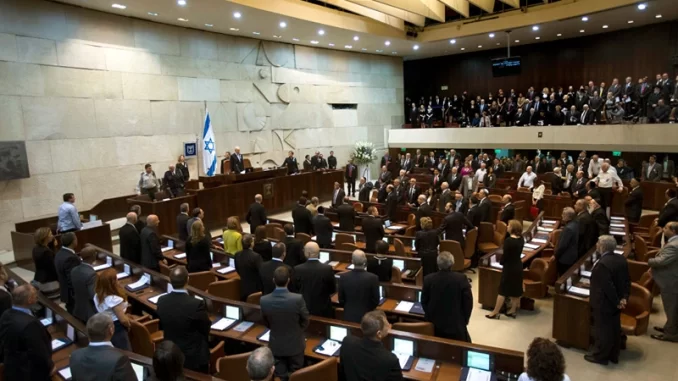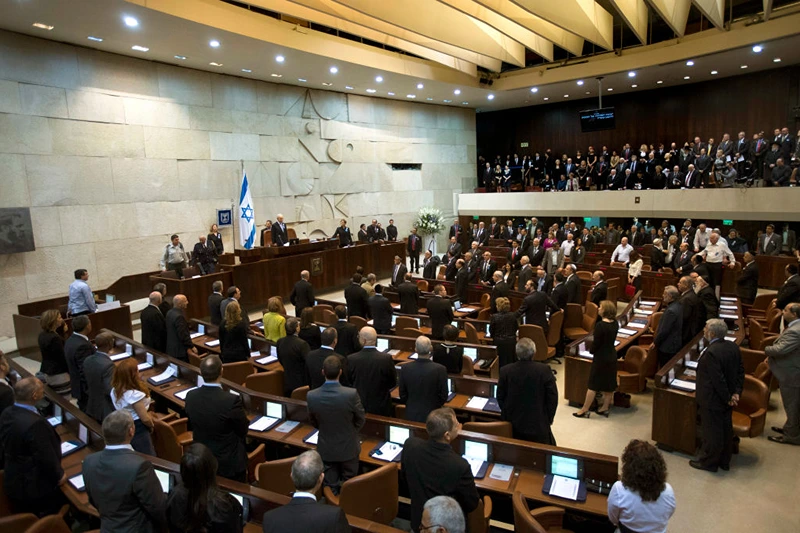

OAN’s Roy Francis
2:13 PM – Thursday, July 27, 2023
The Supreme Court of Israel is set to hear arguments against the Israeli government’s new law which went into effect on Monday.
Advertisement
The new legislation which was passed by a vote of 64-0 in the Knesset, takes away the Israeli supreme court’s ability to block government decisions by declaring them “unreasonable.”
The new law, which Prime Minister Benjamin Netanyahu said will strengthen Israel’s democracy by restoring balance between the judicial branch and the legislature, has been met with protests across the country.
“It’s described as the end of Israeli democracy; I think that is silly,” Netanyahu said. “We have the most activist judicial court on the planet. It has arrogated for itself power from the government, from the executive and the legislative branches. We are trying to correct it.”
He explained that he was trying to bring balance back to the court, and to the Israeli government.
“I want to bring the pendulum to the middle, I don’t want to bring the pendulum to the other side,” he explained.
Netanyahu said that the process has been as “slow as you can go” when speaking with ABC, brushing aside the criticism that he had rushed the legislation through the Knesset. He said that that he had been in office for seven months, and had spent three months seeking the consensus, however the opposition leaders refused any compromises.
“I couldn’t get anything from the opposition, therefore, decided to proceed with this minor correction … and I am still trying to proceed – if not with a consensus with the opposition, then at least with something that has broad consensus with the public,” he said. “I am more optimistic now than I was before. Now that they see we are prepared to move without them, we have a majority, then maybe we will be able to move with them. I hope the opposition leaders show responsibility and come to the middle.”
On Wednesday, the supreme court of the nation announced that it will hear appeals against the new law on September 7th.
The court said that it would debate the new law on the assigned date, however, it would not issue an injunction to block the law from going into effect before the set date. The court will hear arguments from seven different groups that are seeking to have the law thrown out.
Eliad Shraga, chairman of the Movement for Quality Government, announced the decision by the court and said that they will do “everything we can to stop the coup!”
“We are ready,” Eliad Shraga said in a statement. “We will appear in the Supreme Court to defend Israeli democracy, and we will do everything we can to stop the coup!”
Adam Shinar, an associate professor at the Harry Radzyner Law School at Reichman University, spoke with CNN and said that the decision by the court will not dramatically affect the situation since the judges will be on break throughout August.
“An injunction wouldn’t be meaningless, but it wouldn’t change much,” he said. “It’s unlikely this reasonableness clause will do a lot of damage between now and September that would be irreversible. You have to give all the parties, the respondents, time to prepare their briefs. So you can’t just say, let’s discuss this next week. Because obviously this is a very big issue, and they have to think hard about it, and there are a lot of parties involved.”
On Tuesday, Netanyahu said that the court “is not authorized” to strike down the law. While speaking with the newspaper Maariv, sources from Likud, the political party of Netanyahu, said that such a move by the court would be a “nuclear weapon that should never be used.”
“If the Supreme Court repeals a basic law, it will be the straw that breaks the camel’s back, and it will generate even more chaos,” they said. “It would be an attempt to reverse the democratic decision made by millions of citizens and hand over to an unelected bureaucracy the power to oust a prime minister […] The Supreme Court is in a difficult situation and must tread carefully.”
Stay informed! Receive breaking news blasts directly to your inbox for free. Subscribe here. https://www.oann.com/alerts

Be the first to comment